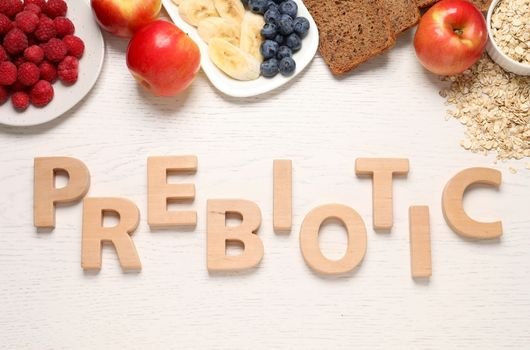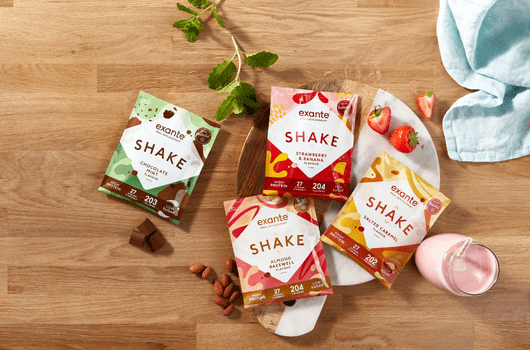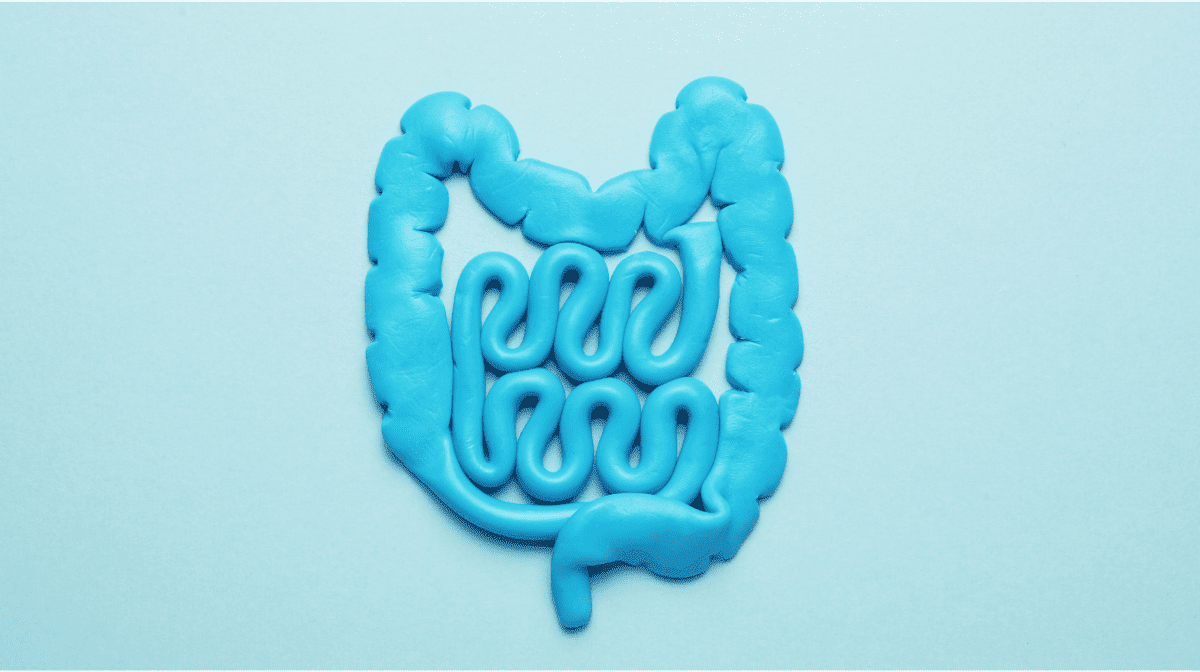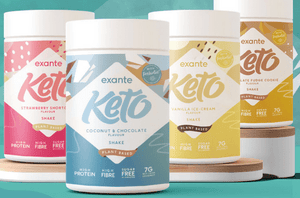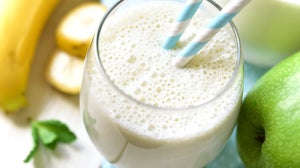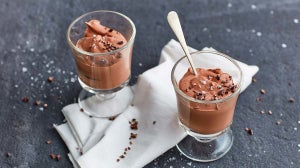
Gut health is a phrase you may have heard a lot recently, and you may be wondering what it all means, and why it’s important. I’m here to unpack one gut-friendly ingredient which has been in the spotlight lately, prebiotics. Read on to learn more about what they are, and our recommendations on how to improve your gut health which can and ultimately support weight loss.
What is the gut?
Put simply, your gut refers to your intestines, which house millions of tiny organisms (microbiomes) that are responsible for digesting the food you eat, nutrient absorption and getting rid of waste.
Maintaining a healthy gut is important because with an unhealthy digestive system, the body struggles to get rid of wastes which can cause uncomfortable symptoms such as brain fog, diarrhoea, constipation, gas and even joint pain!
What are prebiotics?
Prebiotics are defined as non-digestible foods that help promote the growth of beneficial gut bacteria.1 Prebiotics are a type of fibre, which is found in food sources. However, not all fibrous foods are prebiotic.
Some examples of prebiotics include; inulin, polydextrose and wheat dextrin. Whilst this may sound very ‘sciency’, don’t let these scientific names put you off - prebiotics can be found naturally in fibre-rich foods such as vegetables, whole grain carbohydrates and fruits. For example:
Garlic
Leeks
Onions
Asparagus
Bananas
Apple
Oats
Flaxseeds
What’s the difference between prebiotics and probiotics?
Prebiotics are not the same probiotics. Probiotics are live microorganisms typically found in foods such as yogurt and fermented foods. Probiotics are intended to improve or maintain the ‘good’ bacteria in the gut. Prebiotics are typically higher-fibre ingredients that act as foods for the good bacteria. In simple terms, prebiotics can be used to ‘feed’ the probiotics. Research suggests that combining the consumption of prebiotics and probiotics can have the biggest beneficial impact on gut health.1
Can prebiotics help with weight loss?
Because prebiotics are a type of dietary fibre, increasing the fibre content of your diet may help with weight loss. Fibre slows down the body’s digestion rate helping you feel fuller for longer.1 This can help regulate appetite and reduce the need for additional calories. When consumed correctly, prebiotics can help with weight loss and reduce the risk of certain health conditions.
What are the benefits of prebiotics?
We know that prebiotics can improve the health of your gut and improve digestion, but there is also evidence to show they can also reduce constipation, diarrhoea and other intestinal bowel disorders.1
Studies have also shown that taking prebiotics and dietary fibre can support a healthy immune system and promote healthy heart function.2
How can I take prebiotics?
In addition to the fibre-rich foods we listed earlier, there are other tasty ways the enjoy the benefits of prebiotics...
Our new-recipe meal replacement shakes contain gut friendly prebiotics* (4g inulin, to be precise) for a delicious way to integrate them into lifestyle. Available in 20 yummy flavours, you can relax knowing your meal replacement shakes are contributing to your gut health, as well as your weight loss journey.
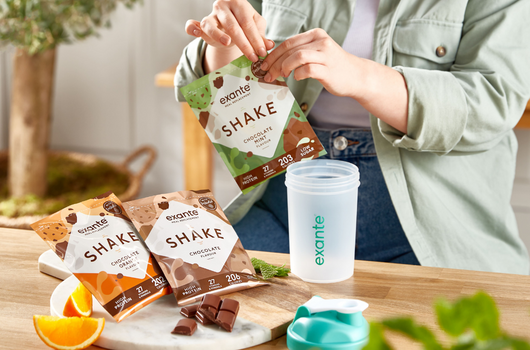
Learn more about the benefits of our updated shake recipe here:
Want to follow a keto diet instead? Our keto shakes also contain prebiotics, keeping your gut happy without derailing your keto diet.
What factors affect gut health?
There are many factors that can affect a healthy gut, these include:
1. Food intake: The food we eat can impact our gut, opting for high fibre meals can encourage a healthier gut environment and help move waste through the body.
Our slender sip weight loss drinks* are a high in Glucomannan, a water-soluble fibre which absorbs water and expands in your stomach. They're delicious and perfect for getting your fibre intake up, whilst still losing weight.
2. Stress: Stress can have a massive impact on our gut health. Stress hormones can also reshape the gut’s bacteria levels which leads to indigestion and constipation.
Want to learn more about managing stress? Read our blog below:
3. Physical activity: Moderate exercise can have a positive impact on your gut, as it may contribute to reducing inflammation and increases the number of beneficial bacteria found in the intestine.
How do you heal your gut naturally?
Drink plenty of water! Staying hydrated is very important for maintaining gut health. Water can improve absorption of nutrients in the gut and the gut’s composition.
Get enough sleep: Sleep is crucial for reaching all your health goals, including healing your gut. Studies show that getting enough sleep can help reduce stress and balance hormone levels.
Change your diet: Avoid foods that are highly processed and are high in added sugars, as they can contribute to inflammation which is harmful to the health of your gut and can hinder nutrient absorption.
One of the most common conditions affecting your gut Irritable bowel syndrome (IBS), watch Dr. Frankie explain exactly what IBS is, and what are the best ways to treat it:
What are the Symptoms of IBS? Dr Frankie explains:
Looking for support reaching your health goals?
Why not join our closed Facebook group and meet members of our exante family who share their experiences when it comes to gut health, weight loss and much more!
For even more tips and tricks to improve gut health, check out our blog post below:
We hope this blog has helped explain the benefits of prebiotics in relation to gut health. We’d love to hear from you! If you have a question or a positive success story, get in touch through our Instagram of Facebook.
Pandey KR, Naik SR, Vakil BV. Probiotics, prebiotics and synbiotics- a review. J Food Sci Technol. 2015 Dec;52(12):7577-87. doi: 10.1007/s13197-015-1921-1. Epub 2015 Jul 22. PMID: 26604335; PMCID: PMC4648921. (IBD issues)
Slavin J. Fiber and prebiotics: mechanisms and health benefits. Nutrients. 2013 Apr 22;5(4):1417-35. doi: 10.3390/nu5041417. PMID: 23609775; PMCID: PMC3705355. (medical conditions)
**A serving of this product contains 4g of your 12g per day chicory inulin (33% of the required daily intake), which helps to maintain regular gut function through more frequent bowel movements.

